March 2017 national eResearch newsletter
Welcome to the AeRO eResearch Newsletter
AeRO National Forum 4 th May Canberra
It’s a date! The 2017 AeRO National Forum will be held on 4 May in Canberra. It will again bring together around 100 directors, CEOs, etc from across the eResearch sector: infrastructure and service providers, NCRIS capabilities, government agencies, cultural institutions, CRCs and CoEs, learned academies, universities and others across Australasia.
The research infrastructure roadmap, the emerging Australian Research Data Cloud, and the challenges created by the rapidly growing data-driven research world provide fertile ground for a productive day of analysis and discussions.
Keep an eye on our website (www.aero.edu.au) and Twitter (@AeRO_eResearch) for details.
 |
ANDS Tech Talk for April: Data Maturity Model & Data Life CycleThe topic for April’s monthly Tech Talk will be “Data Maturity model and Data Life Cycle”. Full speaker line-up to be confirmed soon. Registration is now open at https://www.eventbrite.com.au/e/2017-monthly-tech-talk-in-april-data-maturity-model-and-data-life-cycle-tickets-32707757784?utm_term=eventname_text.This will be held on Friday, 7 Apr at 3-5pm AEDT at numerous live locations around Australia/ These Talks are a series of Australia-wide virtual and face-to-face meetings with inspiring talks and a panel discussion on the monthly topic. All events are free of charge and open to everyone. The session is followed by refreshments and informal local networking. |
 |
RAiD – The Research Activity iDentifier
Managing collaborations across universities and institutions is much simpler through the Research Activity Identifier (RAiD). This is a new service which enables researchers to find, use and share research activities using a familiar, unique and persistent digital identifier. RAiD connects institutions, people and resources resulting in a powerful tool for measuring collaboration, resource allocation and outputs. RAiD complements the GRID identifier for research organisations (https://www.grid.ac/) and the ORCID identifier for researchers (https://orcid.org/). RAiD is being developed by RDS, Nectar, ANDS, AARNet, AAF and NCRIS, and will go live on 30 March 2017. See www.raid.org.au. |
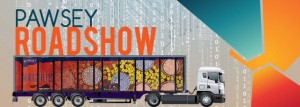 |
Join the Pawsey National Roadshow in Brisbane, Sydney and Adelaide
The Pawsey Supercomputing Centre is on the road this month to showcase its services and resources to researchers in Brisbane, Sydney and Adelaide. The free events will run across 20–24 March. Pawsey staff and researchers using Pawsey resources will answer questions. There will also be an Introduction to Supercomputing training session at all three locations. Read more at https://www.pawsey.org.au/events/. |
 |
Join April’s FlashLite HPC Information Session
Based at a Queensland university and need a high performance computer for your research? See if FlashLite, which supports data-intensive applications and research, is right for you. Join the FlashLite information session on Wednesday, 5 April, 2–3pm AEST. Research Computing Centre Director Prof. David Abramson will conduct the free session via Zoom videoconferencing for QCIF members, which includes staff and students at UQ, JCU, Griffith, QUT, USQ, CQU and USC. Read more at |
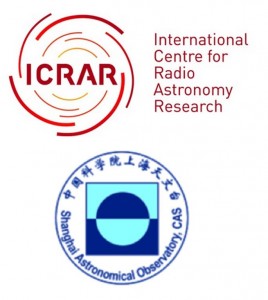 |
SKA Big Data Workshop
This Australia-China Workshop will be held from 10-13 April, 2017 in Shanghai. It is being organised as part of the ERIDANUS Project (Exascale Research Infrastructure for Data in Asia-Pacific Astronomy Using the SKA). ERIDANUS is a three year design study project commencing in 2017, aimed at deploying prototype data intensive research infrastructure and middleware, between and within Australia and China, capable of addressing SKA-class data and processing challenges. It has been initiated by ICRAR (http://www.icrar.org/) and the Shanghai Astronomical Observatory (http://english.shao.cas.cn/). Further information at http://eridanus.net.au/. |
| Networkshop in Melbourne, 22 to 23-Jun-17
Networkshop is a two-day national forum run by AARNet for technologists working on networking and/or networked technologies at AARNet-connected universities and research institutions. This is a technical community-building event with an emphasis on technical collaboration, skills development and the exchange of ideas. Key topics will include:
Registration is now open. To see the program or to register, visit https://networkshop.aarnet.edu.au/ |
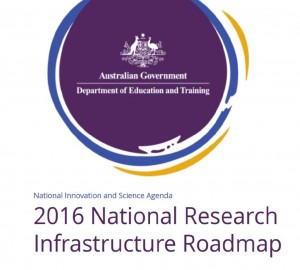 |
Draft 2016 National Research Infrastructure Roadmap
The Draft 2016 National Research Infrastructure Roadmap was released for comment on 5 December 2016. 172 submissions (including from CAUDIT, AARNet, the AAF and universities) were received in response to the Draft Roadmap. Public submissions are now available at https://submissions.education.gov.au/forms/2016-strategic-roadmap/pages/index. Note: submissions had a 1,000 word limit, each one is a (relatively!) quick read. More information about the Roadmap can be seen on the Department’s website at https://submissions.education.gov.au/forms/2016-strategic-roadmap/pages/index |
 |
CAUDIT Calling for ORCiD Experience
ORCID provides a persistent unique digital identifier for researchers. Through integration in key research workflows like manuscript and grant submission, automated linkages ensure that researchers’ work is properly recognised. Over 3,000,000 academics have obtained ORCID IDs worldwide. CAUDIT and the ORCID Consortium are seeking information on institutional investment in system changes to implement ORCID. Furthermore, ORCID would be interested if anyone has a PhD or Masters student that would like to do some economic modelling on this. See https://www.caudit.edu.au/news/orcid-0 For an example of how one university is implementing ORCID see the University of Adelaide: https://www.adelaide.edu.au/orcid/. |
 |
Astronomy Data and Computing Services (ADACS) Launched
Following a two-stage tender process, Astronomy Australia Ltd (AAL) has signed contracts with Swinburne University of Technology and Curtin University/Pawsey Supercomputing Centre to collaboratively provide Astronomy Data and Computing Services (ADACS). The ADACS scope of services for 2017 is intended to include:
Further details can be found at http://adacs.org.au/. |
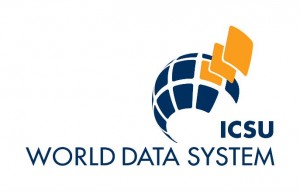 |
World Data System (WDS) Asia-Oceania Conference 2017
The conference will be held in Kyoto, Japan from 26 to 28-Sep-17, and aims to reinforce the data stewardship community in the region, and help establish a collaborative system for access to and dissemination of research data, and in general to strengthen collaboration amongst countries in the Asia–Oceania region around WDS activities. It will bring together data practitioners, repositories managers and researchers supporting international research priorities such as those of ICSU sponsored programmes: Future Earth (http://www.futureearth.org/asiacentre/), Integrated Research on Disaster Risk (http://www.irdrinternational.org/), and the Urban Health and Wellbeing (http://urbanhealth.cn/). More information: http://wdc2.kugi.kyoto-u.ac.jp/wds2017/ |
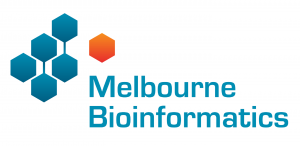 |
VLSCI becomes Melbourne Bioinformatics
In February, the Victorian Life Sciences Computation Initiative (VLSCI) announced that it was evolving into Melbourne Bioinformatics (https://www.melbournebioinformatics.org.au/). Director Andrew Lonie said, “We are now firmly embedded in the life of the Melbourne biomedical and biosciences precinct and every day we are empowering world-class research… acting locally and interacting globally. ” Full story and link to new website here: https://www.melbournebioinformatics.org.au/news/directorfeb2017/. |
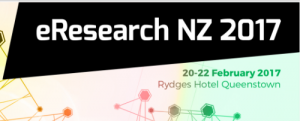 |
eResearch New Zealand Conference
Although the New Zealand eResearch community participate fully in the eResearch-Australasia Conference (held In October) they also run a very successful similar (but smaller) conference in New Zealand. This was held recently in Queenstown, from 20 to 22-Feb-17. The programme, with links to the full presentations, can be seen at http://www.eresearchnzconference.org.nz/wp-content/uploads/2017/03/eRNZ2017_Programme_Presentation-Links.pdf with the main conference Website at http://www.eresearchnzconference.org.nz/. |
 |
ANDS Seeks Data Versioning Examples
The ANDS-facilitated “Dynamic Data Citation Interest Group” is looking for examples of data versioning for the next Research Data Alliance (RD-A) Plenary in Barcelona in April. Can you help? Reproducibility of research results makes it necessary for researchers to cite the exact extract of the data set that was used to underpin their research publication, but no guidelines exist to date. See http://www.ands.org.au/working-with-data/data-management/data-versioning?ct=t(andsUP_14MAR_2017) The Working Group is therefore inviting the Australian research community to send examples of data versioning to help identify best practices. Please email your contributions to jens.klump@csiro.au. All help is much appreciated! |
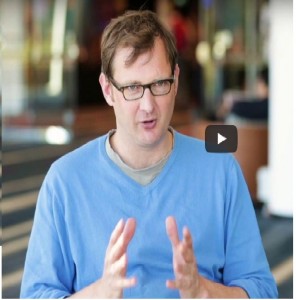 |
AARNet and CERN Ground-Breaking Global Data Synchronisation
When AARNet began building sync&share services a couple of years ago, culminating in CloudStor, the team looked for other nations with a similar use case: the need for high speed replications over vast distances, and there weren’t many peers with the same needs out there, except for CERN (the European Organization for Nuclear Research), and so an interesting and fruitful collaboration was born. AARNet’s Guido Aben explains in a video at https://news.aarnet.edu.au/breaking-barriers-for-high-speed-data-synchronisation-spanning-the-globe/ how this collaboration with CERN has been testing new technologies for high speed data synchronisation and sharing services. |
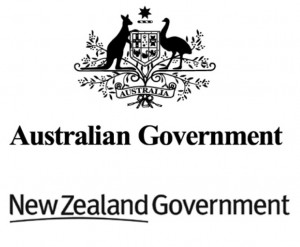 |
Trans-Tasman Research Infrastructure
On 17-Feb-17, the Prime Ministers of Australia and New Zealand have signed a bilateral Science, Research and Innovation Cooperation Agreement that will have a significant impact on the way research infrastructure is designed and delivered (http://www.mbie.govt.nz/info-services/science-innovation/pdf-library/summary-document.pdf). The Agreement documents a shared vision for a trans-Tasman “innovation eco-system”. A Panel discussion at eRNZ a few days later established that there is ample room for joint development of research infrastructure, building on the underpinning research infrastructure provided by AAF/Tuakiri and AARNet/REANNZ that already supports trans-Tasman collaboration. See also http://www.innovationaus.com/2017/03/Out-tech-treaty-with-the-Kiwis/ and the Joint Prime Ministerial Statement at https://www.pm.gov.au/media/2017-02-17/joint-statement-prime-ministers-rt-hon-bill-english-and-hon-malcolm-turnbull-mp. |
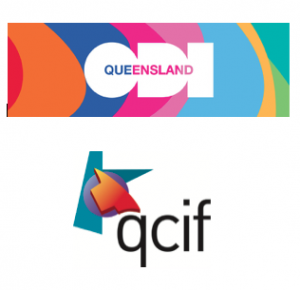 |
ODIQ and QCIF Partner for Open Data and Innovation Projects
QCIF and the Open Data Institute Queensland have formally established a partnership to collaborate on projects involving open data and open innovation. QCIF and ODIQ signed a memorandum of understanding on 23 February 2017 that extends and broadens their current collaborations delivering the value of open data and open innovation to QCIF members and to ODIQ’s activities in Queensland and increasingly nationwide. Read more at |
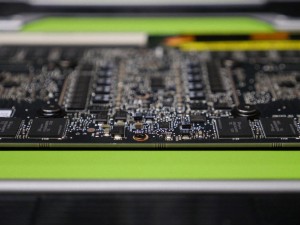 |
NCI’s GPU Infrastructure Grows
NCI has augmented its growing segment of GPU infrastructure with 8 new Pascal P100 GPU accelerators from NVIDIA. These new accelerators represent the next-generation of graphics processors for supercomputing. As evidenced by the rapid uptake and continuing demand for the 120 Kepler K80 GPUs installed in the past year, there is clear interest in the Australian computational research community for GPUs as part of future HPC infrastructure. Read more here http://nci.org.au/2017/03/15/ncis-gpu-infrastructure-grows/. |
 |
Medicine Looks to the Future with Genomics and Big Data
The diagnosis and treatment of cancer and rare diseases in Australia is set to benefit from a partnership between the Australian Genomics Health Alliance (AGHA) and the National Computational Infrastructure (NCI). Genomic medicine uses a patient’s individual genetic information to guide their clinical care, and helps researchers advance medical understanding of the ways diseases work and how they might be better treated. However, performing all the required analyses on genomic data requires significant computational power and a large capacity for data storage. Read more here http://nci.org.au/research/medicine-looks-future-genomics-big-data/. |
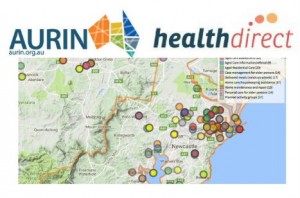 |
Healthdirect National Health Services Directory Data Available Now Through AURIN
AURIN provides free access for researchers to the National Health Services directory (NHSD). This point-level data is published by Healthdirect Australia. The NHSD provides consistent, authoritative, reliable and easily accessible information about health services. AURIN provides the robust infrastructure for secure access to this data on behalf of academic and government researchers alike. NHSD can be analysed using the AURIN Portal mapping tools on the AURIN Workbench alongside additional data such as economic, transport and demographic data. Learn more from the new “Mapping the NHDS” tutorial (see https://docs.aurin.org.au/mapping-the-national-health-services-directory/). |
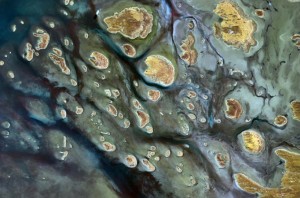 |
Ever-Expanding NCI Data Services
You will be aware that NCI manages Australia’s largest supercomputer, but did you know that we also play a vital role managing data from the environment, water and geophysics research communities? NCI provides researchers access to an ever-expanding national repository of earth systems, observations, climate and weather, and geophysical reference data. These include the latest Landsat and Sentinel satellite imagery and Geoscience Australia’s geophysical data products, which are now available to access and analyse at NCI. Read more here: http://nci.org.au/2017/03/16/ever-expanding-nci-data-services/. |
| |
Cambridge University in Open Research Pilot
The Office of Scholarly Communication at Cambridge University has teamed up with the Wellcome Trust to launch an Open Research project, with four research groups in the initial two year pilot. The goal of the project is to work out the challenges and processes involved in working in an open manner. There will be a series of blogs and other outputs from the project as we progress, starting with the initial blog post: https://blog.wellcomeopenresearch.org/2017/02/10/piloting-more-openness-at-the-university-of-cambridge/ and first thoughts from one of the participants: https://unlockingresearch.blog.lib.cam.ac.uk/?p=1363. |
| |
Nectar Reaches 10,000 Users of its Cloud Service
This month, Nectar celebrates surpassing the impressive milestone of 10,000 registered Research Cloud users. The cloud’s steady growth rate of close to 200 new users per month, since established on February 1st, 2012, is testament to the continuing demand for cloud infrastructure amongst Australian researchers. Our eight nodes across Australia have been instrumental in reaching this target in just over five years through the continued promotion and support of our NCRIS-funded infrastructure. Read some of the researcher success stories at https://nectar.org.au/10000-users-light-nectar-research-cloud/ |
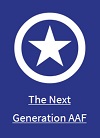 |
Next Generation AAF Project Completed
The Next Generation AAF project has successfully delivered all major outcomes and is now coming to a close. The project deliverables included:
For more information visit the project Website at https://aaf.edu.au/initiatives/next-gen.html. |
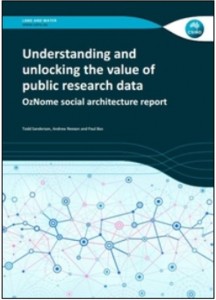 |
Understanding and Unlocking the Value of Public Research Data
A new report has been released by CSIRO looking at the costs and value of publishing research data. See https://publications.csiro.au/rpr/pub?pid=csiro:EP168075 The study, which uses the CSIRO Data Access Portal as a case study, was funded by CSIRO Land and Water as part of the OzNome Initiative. ANDS was a contributor to the work. The supporting data has also been made available in CSIRO’s Data Access Portal at http://doi.org/10.4225/08/58accf025beff. |
Contributions
This newsletter is based on contributions provided by members of the eResearch community, and draws on news articles and newsletters published across the sector. The Newsletter is published around the 16th of each month. Please send any contributions (max. 150 words, plus a link and image) or pointers to any other relevant articles or newsletters to editor@aero.edu.au
Archives of these Newsletters are held at http://aero.edu.au/newsletters/.
Click HERE to add yourself to the eResearch Mailing List.
Thanks,
—AeRO Newsletter Editor

